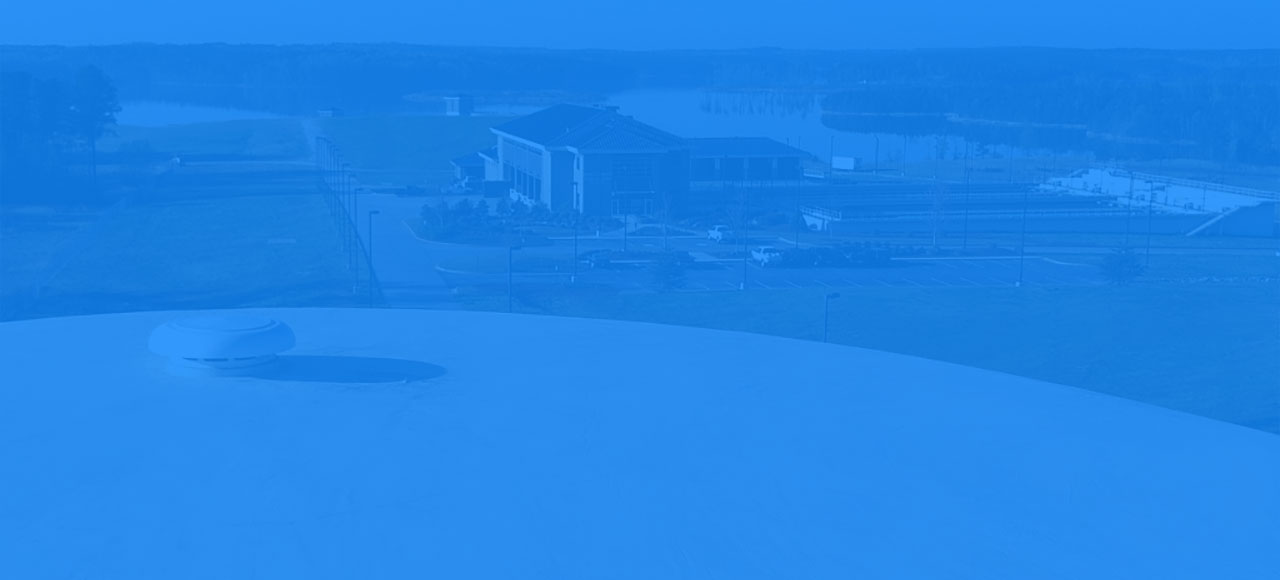CIP Includes $900 million in Future Projects
The collective silence coming from the Henry County Water Authority (HCWA) Board of Directors during its Annual Strategic Planning Session last month at the award-winning Tussahaw Water Treatment Plant was indicative of the challenges the group faces when considering the utility’s long-range Capital Improvement Plan (CIP).
The HCWA staff’s presentation on the Authority’s CIP outlined more than $900 million worth of anticipated capital improvements planned for the next 30 years. The CIP addresses the expected increase in demand for water and sewer services from a growing customer base, as well as initiatives necessary for the Authority to remain in compliance with increasingly strict regulations for the water industry and infrastructure, to ensure a bright economic future and quality of life for Henry County. With the recent adoption of the FY 2018 budget at the HCWA June Meeting, the Authority took another step toward saving for the 30-year CIP.
“Henry County has been and will be one of the fastest growing communities in the state and nation, so the anticipated cost of our long-term capital improvements is quite sobering,” says Jimmy Carter, HCWA Chairman of the Board. “We’ve done well to provide necessary water and sewer services to keep up with growth, but down the road additional funding will be needed, and grants and sources of funding that were available in the past are not viable today.”
Even with Henry County’s unprecedented growth over the past 20 years and the difficulty this brought for the Authority to keep pace, the HCWA has become a model utility in the state and a business leader in the community, says Lindy Farmer, HCWA General Manager, who as the longest tenured water utility chief executive in Georgia accepted the Henry County Chamber of Commerce Business of the Year Award on behalf of the Authority in February.
“We’ve had to build a system from scratch,” notes Farmer, referring to the challenges of building the water/sewer utility from the ground up, without federal funding and grants that were available to older systems such as those in neighboring Clayton and DeKalb Counties. Farmer came to Henry from DeKalb in 1982, to serve as the first GM for what was then a rural Authority that now has its own reservoir network with nearly 500 days of raw water supply for customers.
“In addition to the limited availability of financing and the pace of our growth, we were at a disadvantage with our water resources being in the southern part of the county and the development starting in the northern end,” adds Farmer.
HCWA annual revenue comes from a few sources, but predominantly from water and sewer sales, which equate to approximately 75 percent of the total. However, according to Authority officials, the 2 Mil Tax assessed to Henry County property owners is critical to paying off long-term debt and saving for those anticipated capital improvements over the next 30 years.
Local leaders established a 2 Mil Tax in 1968 via an Amendment to the Georgia Constitution, allowing the Henry County Board of Commissioners to collect this revenue for the Authority, which had been created in 1961 as an autonomous enterprise. Since that time, the 2 Mils have helped offset the cost of developing the HCWA water and sewer system, which would not have been possible without this security for bond issues that were necessary to fund this infrastructure for the community, says Gordon Mortin, bond underwriter for the Authority.
“Without that 2 Mil tax, Henry County would not have the water and sewer system it has today; for example, the reservoirs that now provide a plentiful water supply could not have been financed and constructed,” says Mortin. “For the Authority’s leadership to get voters to approve the 2 Mil tax was visionary, and that vision has brought extraordinary results to Henry County.”
Authority officials note that the 2 Mil Tax is pledged to pay for the outstanding senior lien bond debt, which totals approximately $107 million, through the year 2030. The Authority also carries $50 million in junior lien bonds and another $46 million in GEFA loans. Thus, the 2 Mil Tax has created significant additional savings for ratepayers because it allows the HCWA to receive a higher bond rating, which results in lower interest rates on its bond issues. In addition, the 2 Mil Tax has facilitated economic and industrial development in Henry County, while also helping the Authority make system improvements that address public health and environmental issues within the community.
“Without the 2 Mil Tax, our long-term strategic plan would be scrapped and we’d have to start over,” says Warren Holder, District 1 Representative on the HCWA Board who previously served as a Henry County Commissioner. “The visionaries who established this Authority proposed the 2 Mil Tax so we could fund the renewal and extension of service and infrastructure to meet the demands of citizens, and that need is not going to diminish.”
Chairman Carter notes the HCWA Board continues its efforts to bring down the percentage of the Authority’s long-term debt, using fiscally conservative budgeting and operating principles, bond refinancing opportunities, and the 2 Mil Tax as the means to do so.
“With the 2 Mil Tax, we have around $12 to $13 million to pay toward long-term debt service, which is approximately $22 million annually,” notes Carter. “So, we absolutely need the 2 Mil Tax to continue to pay for what we’ve had to build and for what is yet to come.”
Media contact:
Chris Wood, Ph.D.
Phone: 770-757-1681
Email: chris@jwapr.com

